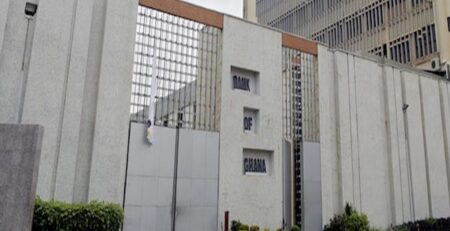Asset quality of banks under threat – Deloitte forecasts
By Augustine AMOAH
THE asset quality of the banking industry will be under threat if COVID-19 continues throughout the year, accounting firm, Deloitte has projected.
This is mainly because industries with significant portions of bank credit, as at December 2019, are the hardest hit in Ghana. It is evidenced in the tourism and hospitality sectors (service industry), manufacturing, transport sector, commerce and construction industry.
If this is anything to go by, more Non-Preforming Loans will be recorded this year.
In its analysis on the impact of COVID-19 on the Ghanaian banking sector, the renowned accounting firm said intensified loan recovery and credit risk management are some of the measures expected to sustain the gains made in the industry to prevent further deterioration and safeguard the assets of the banking sector.
In terms of credit distribution, the service sector registered the highest share of credit (24.1%) as at December 2019 followed by the commerce and finance sector (20.9%). The third largest recipient of credit was the manufacturing sector which received 10.9% of the total credit issued by banks in Ghana.
These sectors also recorded high Non-Performing Loans (“NPLs”) as at December 2019.
The commerce & finance industry accounted for the highest proportion of NPLs at 26.2% while the service and manufacturing industries respectively accounted for 16.9% and 13.4% of the industry’s NPLs as at December 2019.
Giving that these industries are being hit the hardest by COVID-19, Deloitte said the NPL situation is likely to worsen in these industries in the coming months.
The accounting firm also said a sharp drop in interest rates and increased volatility in securities and Foreign Exchange (FX) prices increase banks’ market risk, potentially leading to losses.
Currently, increased volatility and decline in prices across many asset classes have impacted the trading books and increased market risk as well as counterparty credit risk.
Measures adopted by Gov’t & BoG
The Bank of Ghana has reduced the policy rate by 150 basis points from 16 percent to 14.5 percent, which is expected to reduce commercial banks’ lending rates.
The Capital Conservation Buffer (CCB) for banks of 3.0 percent is reduced to 1.5 percent of risk weighted assets. This is to enable banks provide the needed financial support to the economy. This effectively reduces the Capital Adequacy Requirement from 13 percent to 11.5 percent.
The Government of Ghana is also implementing a range of short-term tax measures aimed at bringing relief to corporates and individuals and complimenting the fight against Covid-19.
Deloitte said if general economic conditions deteriorate and lead to lower GDP growth, there could be reduced demand for banking products and services.
Source: The Finderonline














Leave a Reply